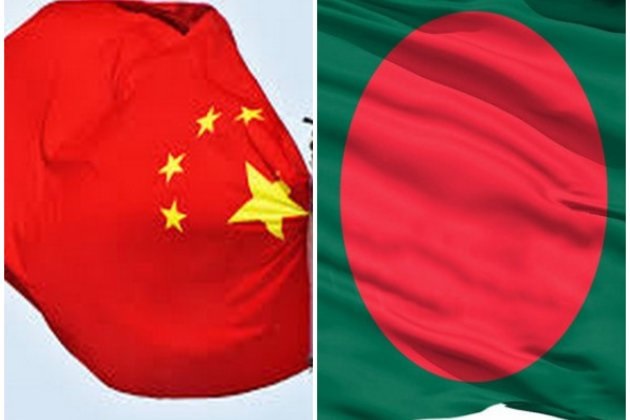Developing countries must ‘think twice’ about China’s BRI loans: B’desh Minister Mustafa Kamal tells FT


In an interview with the Financial Times, Bangladesh Finance Minister AHM Mustafa Kamal has warned that countries, especially developing nations, must think twice before taking more loans through China’s Belt and Road Initiative.
His comments come at a time of global inflation and slowing growth, which are acting as strains on indebted emerging markets.
Speaking to the FT, Kamal said Beijing needed to be more rigorous in evaluating its loans amid concern that poor lending decisions risked pushing countries into debt distress. He pointed to Sri Lanka, where Chinese-backed infrastructure projects that failed to generate returns had exacerbated a severe economic crisis.
“Whatever the situation [that] is going on worldwide, everybody will be thinking twice to agree to this project,” he said in the interview, referring to BRI. “Everybody is blaming China. China cannot disagree. It’s their responsibility.”
He said Sri Lanka’s crisis highlighted that China had not been rigorous enough in deciding which projects to support. It needs to “make a thorough study” before lending to a project, he added.
Over the weekend, China’s Foreign Minister Wang Yi visited Bangladesh and met Prime Minister Sheikh Hasina and other top officials.
In a statement, China called itself “Bangladesh’s most reliable long-term strategic partner” and said the pair agreed to strengthen “co-operation in infrastructure”.
Bangladesh last month became the latest country in Asia to approach the IMF for financing as surging commodity prices after Russian invasion of Ukraine weighed on its foreign reserves. The country, a participant in China’s BRI, owes about $4 billion, or 6 percent of its total foreign debt, to Beijing, reported FT.
The economic hit from the Covid-19 pandemic, as well as the surge in global food and fuel prices amid the Ukraine war, has put many developing countries under strain and some are struggling to repay their foreign debt.
According to FT, Kamal said Bangladesh wanted a first instalment from the IMF of $1.5 billion as part of a total package worth $4.5 billion, which would include financing to help it fund climate change resilience projects and buttress its budget.
Bangladesh is also seeking up to $4 billion more in total from a range of other multilateral and bilateral lenders, including the World Bank, Asian Development Bank, Asian Infrastructure Investment Bank and Japan International Cooperation Agency, Kamal said. He added that he was optimistic the country would secure loans from them.
Sri Lanka, which defaulted on its sovereign debt in May, is in negotiations with the IMF for an emergency bailout. Pakistan, whose foreign reserves have fallen to enough for just a month and a half’s worth of imports, last month reached a preliminary deal with the fund to release $1.3 billion as part of an existing $7 billion assistance package, said the FT report.
Bangladesh has been hit hard by a rising energy import bill, with fuel shortages forcing daily, multi-hour power cuts. Its foreign reserves have also fallen to less than $40 billion from more than $45 billion a year ago.
However, analysts say the country’s strong export sector, notably its garment trade, has helped shield it from the recent global shocks and its reserves are still enough for about five months’ worth of imports, providing the country with some cushioning, the British newspaper mentioned.
This meant that although “everybody is suffering [and] we’re also under pressure”, Bangladesh was not at risk of defaulting like Sri Lanka, Kamal said. “There is no way to even think of a situation like that.”
The government has responded to the economic downturn by cancelling a series of planned infrastructure upgrades, including investments in building a 5G network and upgrading highways.
“Whichever projects are essential and are in process and will pay off as fast as possible, we’re only taking care of those,” Kamal said in the interview. “To other projects, we’re saying, no thank you.”###
—-report in The Daily Star, Dhaka, Aug 11, 2022
https://www.thedailystar.net/business/economy/news/chinese-loans-developing-countries-must-think-twice-3092111
-
Book Shelf
-
 Book Review
DESTINY OF A DYSFUNCTIONAL NUCLEAR STATE
Book Review
DESTINY OF A DYSFUNCTIONAL NUCLEAR STATE
- Book ReviewChina FO Presser Where is the fountainhead of jihad?
- Book ReviewNews Pak Syndrome bedevils Indo-Bangla ties
- Book Review Understanding Vedic Equality….: Book Review
- Book Review Buddhism Made Easy: Book Review
- Book ReviewNews Elegant Summary Of Krishnamurti’s teachings
- Book Review Review: Perspectives: The Timeless Way of Wisdom
- Book ReviewNews Rituals too a world of Rhythm
- Book Review Marx After Marxism
- Book Review John Updike’s Terrorist – a review
-
-
Recent Top Post
- NewsTop Story Record Pentagon spending bill and America’s hidden nuclear rearmament
-
 NewsTop Story
Taliban Suffers Devastating Blow With Killing Of Minister
NewsTop Story
Taliban Suffers Devastating Blow With Killing Of Minister
-
 China NewsCommentaries
Reality Shadow over Sino-American ties
China NewsCommentaries
Reality Shadow over Sino-American ties
-
 CommentariesNews
Ides of trade between India and Pakistan
CommentariesNews
Ides of trade between India and Pakistan
-
 CommentariesTop Story
Palestinians at the cross- roads
CommentariesTop Story
Palestinians at the cross- roads
-
 CommentariesTop Story
While Modi professes concern for the jobless, “his government’s budget escalates class war”
CommentariesTop Story
While Modi professes concern for the jobless, “his government’s budget escalates class war”
-
 CommentariesNews
Politics of Mayhem: Narrative Slipping from Modi ….?
CommentariesNews
Politics of Mayhem: Narrative Slipping from Modi ….?
-
 Commentaries
Impasse over BRI Projects in Nepal
Commentaries
Impasse over BRI Projects in Nepal
-
 CommentariesNews
Yet another Musical Chairs in Kathmandu
CommentariesNews
Yet another Musical Chairs in Kathmandu
-
 CommentariesTop Story
Spurt in Anti-India Activities in Canada
CommentariesTop Story
Spurt in Anti-India Activities in Canada
AdSense code



















